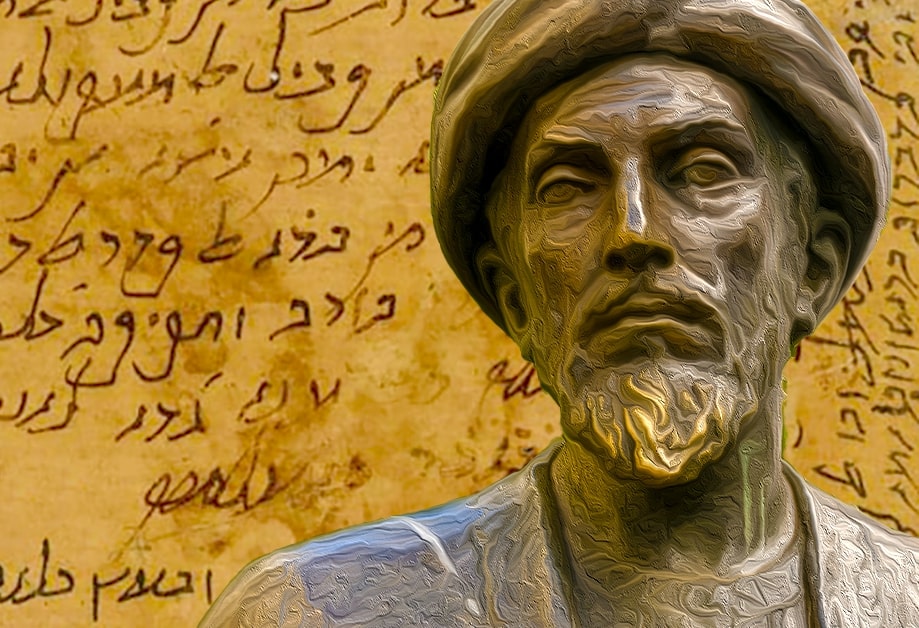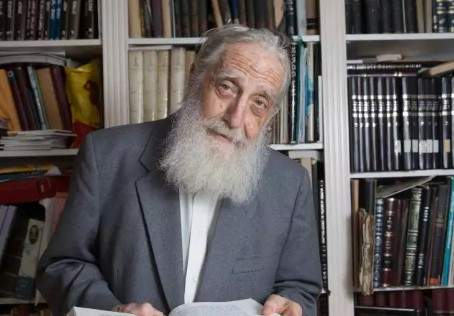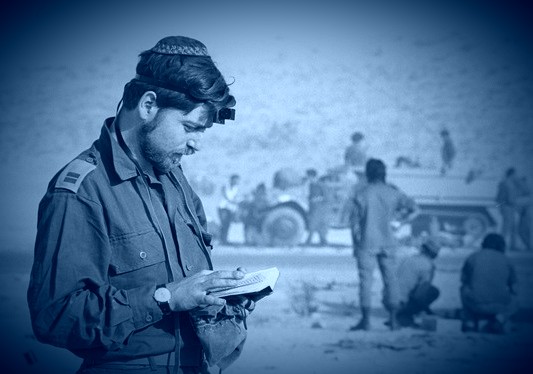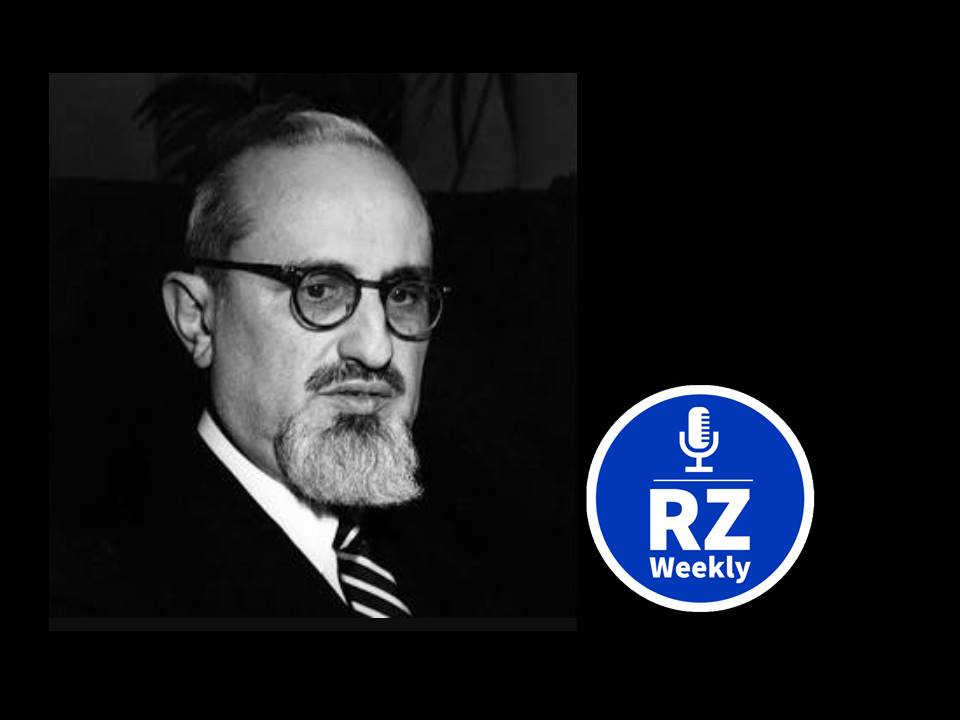Discover Tradition Podcast
Tradition Podcast

Tradition Podcast
Author: Tradition Online
Subscribed: 32Played: 612Subscribe
Share
© 2023 Tradition Online
Description
Tradition: A Journal of Orthodox Jewish Thought is a quarterly Orthodox Jewish peer-reviewed academic journal published by the Rabbinical Council of America. It covers a range of topics including philosophy and theology, history, law, and ethics.
34 Episodes
Reverse
TRADITION’s most recent issue features a special section with short reflective essays on the events of October 7th and the ongoing war in Israel. In this episode, two of those authors meet to discuss the topics touched on in those very personal pieces of writing. Chaim Strauchler engages with Alex S. Ozar, who serves as a rabbi with the Orthodox Union’s JLIC and the Slifka Center for Jewish Life at Yale University. Alex’s essay, “War in Israel, in New Haven” captures the raw emotions, trauma, and fear of last Simhat Torah. He wonders: Is the Golden Age of American Jewry, in fact, over? He shares reflections on the Jewish experience on the Yale campus over the past number of months and what that experience says about the future of American Jewry. Amidst many frightening anecdotes, he communicates optimism about his students and the prospects for future Jewish success.
Chaim Strauchler, associate editor at TRADITION, in his essay, considers how we might make the best opportunities of the current crisis, to grow and improve from amidst its ashes. Locating in Maimonides’ teachings a call to accountability he suggests three arenas for discussion: a counter-narrative to the oppressor/oppressed duality; a renewal of Zionism; and ways to heal as a nation and a people.
You can read both of these essays open-access in our newest issue.
Because TRADITION has always aspired to be more than a quarterly print journal and aims to help shape the conversation and have an impact in our religious community, about five years ago we broadened our reach by expanding our digital-direct offerings, producing shorter-form original content distributed on TraditonOnline.org and over social media—this includes the podcast, expanded coverage of books and cultural criticism, and a platform to feature new authors.
Since December 2022 Yitzchak Blau has been producing “Alt+SHIFT”—that’s the keyboard shortcut allowing us quick transition between input languages on our keyboards. For many readers of TRADITION this is the move from English to Hebrew (and back again). Blau has shared his insider’s look into trends, ideas, and writings in the Israeli Religious Zionist world to help readers from the Anglo sphere gain insight into worthwhile material available only in Hebrew. This series is now heading off on hiatus and we thought it would be a good idea to talk with its author about what he’s accomplished in the 30 installments of the column. Yitzchak Blau, Rosh Yeshivat Orayta in Jerusalem’s Old City, is an Associate Editor of TRADITION.
Later in the episode, we meet Moshe Kurtz, who will be stepping in with a new series, “Unpacking the Iggerot,” exploring themes and topics at the intersection of halakha and hashkafa as they arise from the Iggerot Moshe of R. Moshe Feinstein zt”l. He joins us now for a quick preview of what we can expect from that upcoming series. Kurtz is the Assistant Rabbi at Congregation Agudath Sholom in Stamford, CT, author of Challenging Assumptions, and host of the podcast Shu”T First, Ask Questions Later.
Yisroel Ben-Porat, a doctoral candidate in early American history at CUNY Graduate Center, is writing a doctorate on the Puritans’ use of the Hebrew Bible as a political text. In TRADITION’s recent Fall 2023 issue he offered a historical investigation of an enigmatic early eighteenth-century figure, “Rabbi” Judah Monis—the first known Jewish-born degree recipient and faculty member at Harvard, where he taught Hebrew for almost four decades. Monis converted in advance of his appointment, but seems to have maintained a complicated relationship with the Judaism he left (or tried to leave) behind. The Tradition Podcast spoke with Ben-Porat about this little-known chapter which opens very many questions about American Jewish identity and politics, Antisemitism, and even current events and conflict on the Harvard campus and the halls of Congress (in ways Ben-Porat could not have anticipated when he authored the essay months ago).
Read Yisroel Ben-Porat, “Protestant Rabbi: The Conversion of Judah Monis in Colonial Massachusetts,” TRADITION (Fall 2023).
Watch a video recording of this discussion.
Listen to an introduction to TRADITION’s upcoming Winter 2024 issue, with special content related to the ongoing war in Gaza. Jeffrey Saks observes: The initial shock, horror, and trauma of October 7th have in no way abated and all thoughts remain fixed on the “matzav”—our most abnormal situation. Writing from Israel, our editor considers the challenges for our religious community, the heartening reality of Jewish unity, and some sharp questions it poses for our way forward. Listen to this Audio Editor’s Note accompanying the new issue, due to arrive in subscribers’ hands and online next week.
TRADITION’s Summer 2023 issue, recently made fully open access, contained a fascinating offering penned by Michael A. Shmidman, our distinguished editor emeritus, titled “Isadore Twersky’s Unique Contribution to the Study of The Guide of the Perplexed.” It is a presentation and analysis of five integral and interlocking components of Rabbi Professor Isadore (Yitzhak) Twersky’s understanding of Maimonides’ formulation of the relationship between the philosophic tradition and the Oral Law, particularly as expressed in the Moreh Nevukhim.
Shmidman suggests that all of Maimonides’ works, as viewed by Twersky, “promote the integration, the blending, the fusion of law and philosophy. We should not bifurcate the most central Jewish figure of the medieval era into Rambam the halakhist and Maimonides the philosopher, but rather view his work as one united entity.” Because R. Twersky’s major scholarly focus was on the Mishneh Torah, his unique contribution to the study of The Guide of the Perplexed is, Shmidman suggests, sadly underappreciated—and that contribution is the focus of this essay.
Michael A. Shmidman is Dean and Professor of Jewish History at Touro University Graduate School of Jewish Studies. This most recent essay originated as a lecture at a conference commemorating the 25th yahrzeit of R. Isadore Twersky convened at Yeshiva University’s Bernard Revel Graduate School of Jewish Studies at Yeshiva University (on September 11, 2022). We thought our readers would appreciate listening to Shmidman’s talk alongside reading his essay at TraditionOnline.org. The recordings of all the lectures at that daylong event, “Understanding Halakhah, History & Spirituality,” can be found on Revel’s YouTube channel—and we thank our friends at the Bernard Revel Graduate School for sharing this resource with our listeners.
As we continue to wrestle with the state of anxiety for what comes next at this troubling and traumatic time in Israel and around the Jewish world, we take strength from demonstrations of inspiring resilience and unity in our nation. We hope you’ve been following the content recently published on TraditionOnline.org responding to current events. In our upcoming Winter issue we hope to deliver some more substantive writing, tentative and initial as it may be, bringing the lens of Orthodox Jewish thought to bear on this war.
In the meantime, as we try to make sense of things while navigating the maze we find ourselves in, we thought it would be useful to check in with TRADITION’s “elder statesman,” Rabbi Emanuel Feldman, whose wisdom, insights, and opinions cast useful light in the darkness—perhaps even more so as he enters the back end of his 10th decade with all the intellectual rigor readers of our pages have been accustomed to since his first early contribution in 1960. (Read all of R. Feldman’s TRADITION articles and columns here.) In this episode R. Feldman chats with our editor Jeffrey Saks about the current Gaza War in light of his memories of the Six Day War and the Yom Kippur War; the challenges to Zionism and religious Zionism going forward; and his cautious optimism for a renewed Jewish spirit when the fog clears and we emerge victorious. They also talked about the role of TRADITION as a scholarly journal of ideas at a time such as this.
Rabbi Emanuel Feldman served in the rabbinate in Atlanta for over 40 years before making his home in Jerusalem in 1991. He edited TRADITION from 1988 to 2001 and remains a valued counselor to our journal.
“The entire world is a very narrow bridge.” The world, all of life, is a “narrow bridge,” on either side of which is a gaping, terrifying abyss. Someone who does not live this experience cannot understand it. One needs to traverse the bridge, and it is clear from an objective perspective that he is capable of doing so. This is why “the main thing is not to fear at all.” Your greatest enemy is not outside of you, but, rather, inside of you. It is fear itself.
So writes Prof. Shalom Rosenberg z”l in his essay “A Narrow Bridge: R Nahman of Breslov’s Faith in a World of Doubt” appearing in TRADITION’s recent Fall 2023 issue. Rosenberg was a distinguished professor of Philosophy and Jewish Thought at the Hebrew University and a widely-regarded public intellectual. He passed away in Jerusalem in March 2023. This essay was, of course, written and sent to press before our current traumatic moment in Israel — what all agree is a time in which we must find faith in a world of confusion and many are plagued by doubt. Because Rosenberg’s essay presents itself to us with such unexpected timeliness, we thought it would be instructive to discuss it with Rabbi Dr. Zvi Leshem, himself a student of Rosenberg. Leshem is the director of the Gershom Scholem Collection for Kabbalah and Hasidism at the National Library of Israel.
Read “A Narrow Bridge: R Nahman of Breslov’s Faith in a World of Doubt” (TRADITION, Fall 2023).
During this time of worldwide Jewish unity, TRADITION is pleased to deliver an episode of our podcast co-produced with our friends at Matan: The Sadie Rennert Women’s Institute of Torah Study in Jerusalem.
Our recently released Fall 2023 issue features an essay by Dr. Yosefa Fogel Wruble titled “Psalm 139: When God’s Presence Both Overwhelms and Eludes” which explores two exegetical prisms for Psalm 139 and the theological relevance in understanding this mizmor as a form of emotional struggle with God. Of course, when the essay was written, and when we went to press a few weeks ago, no one could have foreseen how its themes would become presciently relevant to our current moment—but that’s often how it is with Torah learning. We thought it would be appropriate to chat with the author about her essay in light of the events on Simhat Torah and the war.
Dr. Yosefa Fogel Wruble is a Ramit in the Women’s Beit Midrash at Migdal Oz, a lecturer at Matan, and the host of the 1-on-1 Parsha Podcast from Matan which explores deep thematic points of the weekly Torah portion. For today’s we turn the microphone back on her, making her the guest of this episode, for which she is joined by TRADITION’s associate editor, Rabbi Yitzchak Blau. They discuss the feeling of being overwhelmed by God and the feeling of His absence. Wruble deepens her analysis and the conversation moves in some novel directions: How does the Psalmist’s self-expression compare to the prophetic ambivalence of Jonah and Jeremiah? What are possible responses to our paradoxical experiences of feeling both His presence and absence Which related issues have the current situation brought to the fore?
Read “Psalm 139: When God’s Presence Both Overwhelms and Eludes” by Yosefa Fogel Wruble (TRADITION, Fall 2023).
TRADITION and the Rabbinical Council of America brought together authors from our recent issue on “The Yom Kippur War After 50 Years” as they discuss insights from their contributions to our pages and the sudden, tragic timeliness of that issue for events unfolding in Israel. Dr. Shlomo Fischer, Rabbi Jeffrey Saks, Rabbi Dr. Tzvi Sinensky and moderator Mrs. Mali Brofsky. TRADITION has made the content of our entire special “Yom Kippur War After 50 Years” issue (Summer 2023) open access as a special digital book: https://traditiononline.org/the-yom-kippur-war-after-50-years
SUBSCRIBE TO THE TRADITION PODCAST
Available on iTunes / Spotify / SoundCloud / Stitcher / Google Podcasts
TRADITION’s Fall 2022 issue featured a lengthy essay by Todd Berman exploring a 6-decade-old critique launched by R. Eliezer Berkovits on Dr. Abraham J. Heschel’s “Theology of Divine Pathos.” In brief, the debate centered on Heschel’s contention that a prophet reacts to God’s emotions, that the navi is guided by God’s own feelings. For Berkovits, Heschel errs by aligning himself with the wrong side of the anthropomorphism and anthropopathism debate.
Berkovits was a significant figure in mid-century Orthodox Jewish thought and was an important contributor to the pages of TRADITION. A noteworthy curiosity of Berkovits’ critique of Heschel was its appearance with an editorial note expressing some reservation about this “controversial” offering, which “evoked sharp differences of opinion among members of our editorial board,” on which he served as a member at that time. Plus ça change. Berman’s essay, with its defense of Heschel, similarly evoked sharp differences of opinion among our readers.
Todd Berman joins the TRADITION Podcast to discuss the underpinnings of the original debate between Berkovits and Heschel; how the Orthodox community’s reception of those ideas has evolved in perhaps surprising ways over the decades; and what aroused his interest in this old episode which turns out to be still quite relevant to contemporary Jewish thought.
See Berman’s essay, “Berkovits, Heschel, and the Heresy of Divine Pathos,” with links to Berkovits’ original 1964 article, the array of reactions generated among our readers, and Berman’s response.
Rabbi Todd Berman is the Director of Institutional Advancement and a Ram at Yeshivat Eretz HaTzvi.
On April 23, 2023, TRADITION and the Rabbinical Council of America convened our first TRADITION Today Summit, hosted at Congregation Rinat Yisrael in Teaneck, NJ, exploring “Material Success and Its Challenges.” Among the papers presented at the event was a fascinating item co-authored by Avital Chizik-Goldschmidt and Chaim Saiman, “Material Success and the Rise of ‘Modern, Orthodoxy’” – in which a lot rides on the title’s enigmatic comma.
While the papers from the Summit will be appearing in an upcoming issue of TRADITION, in the hopes that the discussions and debates there will have a greater impact and reach within the broader community, we are rolling out some of the content through our journal’s different media arms. In this episode of our podcast, editor Jeffrey Saks (who co-chaired the Summit with Shlomo Zuckier) chats with Saiman about the paper and the unique and curious ways in which the markers of Orthodoxy’s material aspirations each respond to the halakhic requirements and religious aspirations of persons who live fully within Orthodoxy and who are invested in its continuity.
Chaim Saiman is Professor of Law and Chair in Jewish Law at Villanova University’s Charles Widger School of Law, and Albert J. Wood Fellow at the Katz Center for Advanced Judaic Studies, University of Pennsylvania.
Watch a video recording of the conversation.
Three decades following the passing of the Rav zt”l his legacy endures and his teachings still inspire – but how do we communicate his Torah to a generation “which did not know Yosef” (R. Yosef Dov Halevi Soloveitchik, that is)? This is a question that is explored from a few different angles in TRADITION’s recent expanded issue on the thought of the Rav.
Readers of the special issue will discover that one of the many insightful perspectives on this particular question is offered by Mali Brosky, whose essay “The Rav’s Enduring Pedagogical Relevance” takes up the challenge of how we can best convey R. Soloveitchik’s thought, hashkafa, and philosophy to students born over a decade after his death and almost a generation after he left the public stage. It is indeed complex, but crucial, and Brofsky makes a compelling case for why it’s more important than ever, offering some lessons from her many years of teaching. She recently discussed her essay on the podcast she co-hosts, RZ Weekly, which surveys issues facing the Religious Zionist community in Israel and worldwide. It’s an engaging weekly roundtable conversation between Mali and her educational colleagues, Johnny Solomon and Reuven Spolter. We thank them for allowing us to share the segment of this episode over our feed – search for RZ Weekly on all podcasting platforms to subscribe.
Subscribers can access the essay alongside some open-access content available to all at https://traditiononline.org/rabbisoloveitchik120issue where the issue can be purchased as well.
Mali Brofsky is a senior faculty member at Michlelet Mevaseret Yerushalayim, teaches for Wurzweiler School of Social Work at Hebrew University, and runs a clinical social work practice in Gush Etzion.
Our editor, Jeffrey Saks, offers this audio version of his Editor’s Note introducing TRADITION’s special issue on the thought of Rabbi Joseph B. Soloveitchik zt”l. In Saks’ essay, “We Read the Rav to Know We Are Not Alone in Loneliness” (open access here), he shares his own personal encounter with the Rav’s writings at a pivotal moment in his own religious development, and discusses the important role the Rav played in the American Orthodox scene and in the pages of our journal.
Click here to see the contents of the new issue, sample open-access content, and order your copy.
Here we are, days before the arrival of Passover. If we are not drowning in cleaning products, chances are we’re doing the equally important work—perhaps more important work—of reflecting on the Exodus story in advance of Seder night. A highlight of this week’s observances is the recounting of the biblical Ten Plagues. In an interesting new book, Dr. Jeremy Brown considers the Eleventh Plague, a kind of catch-all phrase he uses to explore how Jews as a people and Judaism as a religious tradition have encountered and responded to plagues, disease, and pandemics from the Bible right up to our own days of COVID-19.
Dr. Jeremy Brown, Director of the Office of Emergency Care Research at the National Institutes of Health, is a physician and historian of science and medicine. TRADITION’s Winter 2021 issue featured his essay “The Plague Wedding,” which was republished as a chapter in his most recent book, “The Eleventh Plague: Jews and Pandemics from the Bible to COVID-19″ (Oxford University Press).
The TRADITION Podcast recently caught up with Brown to talk about his work, traditional Jewish responses to plague and disease, and, more generally, his assessment of how Jewish thought and halakhic tradition have responded over time to such occurrences—and how we fared during the most recent pandemic. Jeremy considers the long arc of history and does so through the prisms of theology, halakha, ritual, and folk custom (some admittedly bizarre—including the so-called shvartse khasene or plague wedding, about which he wrote in our pages). He balances this with the insights and wisdom drawn from history, epidemiology, medical science, sociology, and public policy.
The host for this episode is Jeffrey Saks, editor of TRADITION.
Watch a video recording of this conversation.
Avivah Gottlieb Zornberg is an internationally recognized teacher and lecturer around the English-speaking world and, each week, in multiple settings in Jerusalem, where her unique style of integrating keen readings of the weekly Torah portion with the commentaries of midrash, classical meforshim, Hasidic interpretation, and more, are supplemented by the insights she draws from philosophy, psychoanalytical readings, literature, and culture at large – the “best that’s been thought and said,” as it were. Her work has inspired generations of students, and has produced a very rich body of six volumes on biblical books and themes.
TRADITION’s Winter 2021 issue featured her essay “On Love, Holiness, and the Other,” and, channeling the work of psychoanalyst Jonathan Lear and R. Aharon Lichtenstein, explored the “command to aspire” as an ethical imperative. That essay has now appeared as part of a larger chapter in her most recent book, The Hidden Order of Intimacy: Reflections on the Book of Leviticus (Schocken).
As the Jewish world commences our annual reading of Leviticus this week the TRADITION Podcast spoke with Zornberg about her new book, the unusual way it came about, and the intellectual “atmosphere” she breathes in order to produce works of Torah scholarship that bring together such wide-ranging voices. We also discussed the troubling state of the study of the humanities in the world today and within Jewish learning in particular. The host for this episode is Jeffrey Saks, editor of TRADITION.
Watch a video recording of this conversation.
Recording of Rabbi Chaim Brovender and Mrs. Mali Brofsky in conversation to mark the 120th birthday of Rabbi Joseph B. Soloveitchik zt"l. Hosted by TRADITION and WebYeshiva.org (12 Adar/March 5, 2023).
Dr. Tovah Lichtenstein and R. Jeffrey Saks in conversation to mark the 120th birthday of Rabbi Joseph B. Soloveitchik zt"l. Hosted by TRADITION and WebYeshiva.org (12 Adar/March 5, 2023).
Prof. Marc B. Shapiro’s recent essay “From the Pages of TRADITION: R. Esriel Hildesheimer on Torah Study for Women” (TRADITION, Summer 2022), was the subject of our most recent podcast. Shapiro joined Jeffrey Saks to discuss Hildesheimer’s legacy and that of 19th-century German Orthodoxy; the history of women’s Torah study; trends in Jewish education; and the intersections of Jewish history and thought.
Marc B. Shapiro holds the Harry and Jeanette Weinberg Chair in Judaic Studies at the University of Scranton. He is the author of, most recently, Changing the Immutable: How Orthodox Judaism Rewrites Its History (The Littman Library of Jewish Civilization), among many other scholarly works.
Watch a video recording of this conversation.
In the 1970s Moral Philosophy turned its attention to an ancient topic – but coined a new name to organize our thinking about it. That field, now known as “Moral Luck” constitutes a set of fascinating and important philosophical debates. Do we judge people by their intentions, for good or for ill, or by the results of those intentions? This has serious implications for both ethics and jurisprudence, and in civil society as well as within our own religious Tradition.
Rabbi Dr. Michael J. Harris recently published “Resultant Moral Luck and Jewish Tradition” (TRADITION, Fall 2022), examining the many significant sources within rabbinic literature that can be brought to bear on this discussion. Harris is Senior Rabbi of the Hampstead Synagogue and Senior Research Fellow at the London School of Jewish Studies. The conversation delved into his essay and the philosophical, halakhic, and aggadic literature surrounding “Moral Luck,” but also discussed how he navigates his role as both community rabbi and academic scholar, as well as the state of philosophical inquiry and the liberal arts within contemporary Modern Orthodoxy.
Watch a video recording of this conversation: https://youtu.be/J36ms8qPhy4
Read "Resultant Moral Luck and Jewish Tradition": https://traditiononline.org/resultant-moral-luck-and-jewish-tradition/
TRADITION’s Summer 2022 issue featured an article by Yakov Nagen, “Sharing Torah with the World: The Jewish People’s Responsibility to Non-Jews.” The essay was part of a cluster of content related to topics in Jewish Universalism.
Nagen’s contribution is a learned treatment of issues related to the challenge of being a “light unto the nations” in which he argues that teaching Torah to non-Jews is the most effective way to fulfill our Jewish spiritual mission. His is a provocative thesis, since it must account for longstanding contrary attitudes and approaches, and must justify the endeavor in the face of readings of tradition and halakha which (at best) looks at such activity with suspicion, or (at worst) outright forbids it. Nagen takes this all on in his essay – available open-access to our readers.
Rabbi Dr. Yakov Nagen is the director of Ohr Torah Stone’s Beit Midrash for Judaism and Humanity and Blickle Institute for Interfaith Dialogue. He is also a long-time senior rabbi (Ram) at the Otniel Yeshiva.
Watch a video recording of this conversation.
























